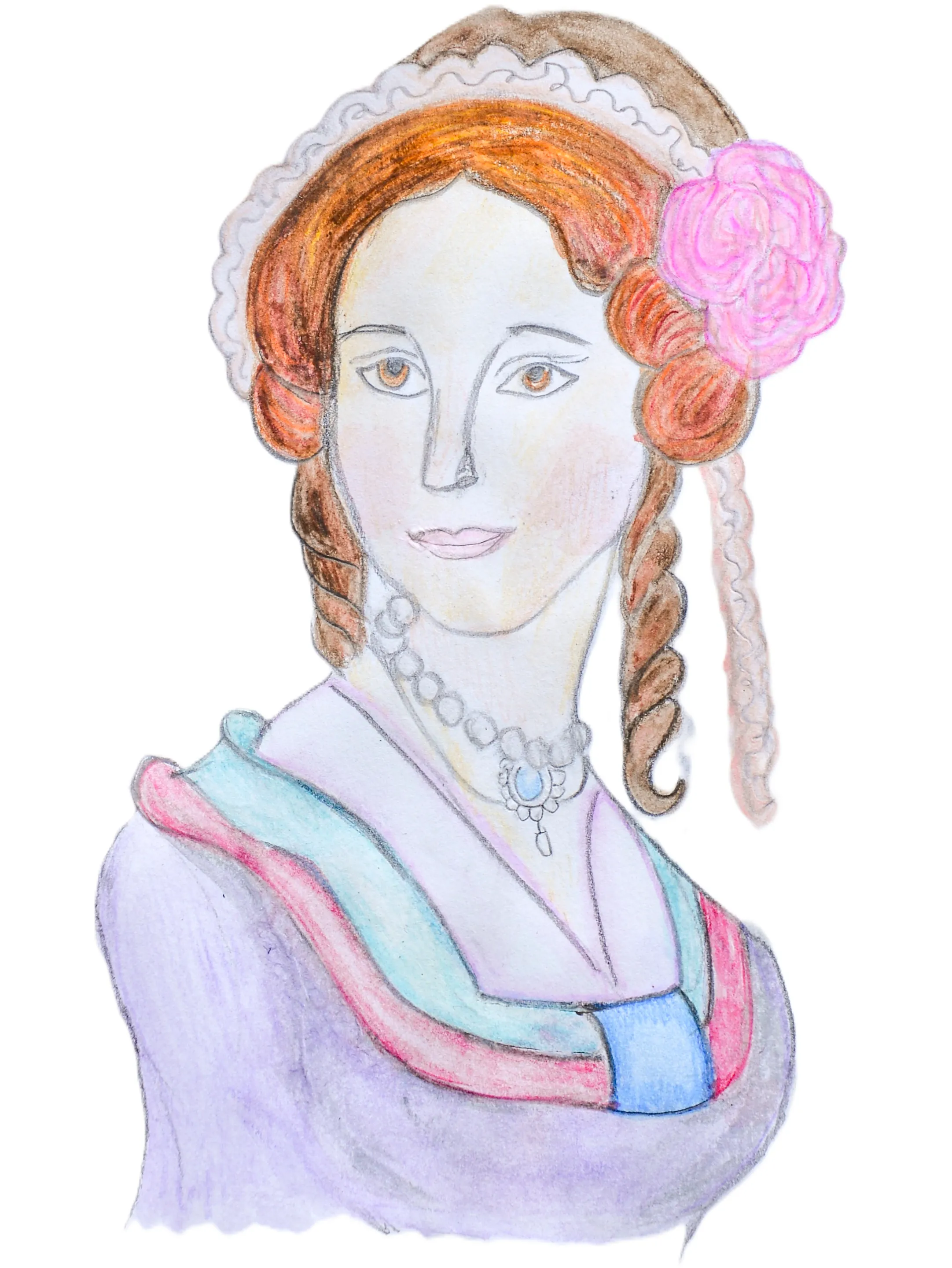
How Rebels Can be Trailblazers of the Future
Editor-in-Chief Tallulah Friedlander, LVI, looks at how Mortlake’s history reveals an unlikely story of global freedom.

Tallulah Friedlander
Editor in Chief, 2025
I’d like to confess something. Before writing this article I genuinely thought that the only notable people to have ever stepped foot in my postcode are David Gandy, the M&S underwear model, and Mary Berry, who actually attended Ibstock in the 1940s. Now, don’t get me wrong, I, unlike David Gandy, love to indulge in a good Bakewell tart, but up until now I have felt that my regional history lacked substance - that it lacked legacy.
However, at a visit to my local library, I discovered something intriguing: Ada Lovelace, the world’s first computer scientist and programmer, lived in Mortlake, Southwest London when she was fifteen. It came as a surprise to me that someone so globally influential had lived in my area without me knowing, and that more importantly the experience she had there actually shaped her future in more ways than one.
Born to the eccentric poet Lord Byron and the astute Annabella Milbanke who Byron nicknamed his ‘princess of parallelograms’ in 1815, Ada displayed astonishing intellect from a young age. Without a close relationship with either of her parents, she was often left under the supervision of first-class tutors, most notably the mathematician-logician Augustus De Morgan of the University of London. It was at the mere age of twelve that Ada decided she wanted to fly. From her investigations of what material would make the best wings; paper, oil silk, feathers, to her examinations of bird anatomy, she demonstrated a passionate and imaginative interest in the sciences, later writing a book called Flyology which illustrated her findings.
However, while most parents would praise a child like this for not succumbing to the lure of hitting a hoop with a stick in the street or whatever it was that Georgian children did for fun, Ada’s pursuits concerned her mother. Annabella, having experienced a tumultuous marriage with Lord Byron, feared Ada was starting to display the same love for poetry and imagination as her father, and so she decided to move to Mortlake with three unmarried female friends who would be a good influence on her daughter, preventing any hereditary signs of perceived insanity, and prohibiting her creative studies.
Nevertheless, Ada withstood her mother’s attempts to limit her individuality and sought freedom the cookie cutter mould of what Annabella wanted her to be, openly hating her three nosey chaperones and continuing to follow her curiosities. Acts of rebellion like this, however small, are what shapes our global history. Had Ada submitted to her mother in Southwest London, it’s possible that her indelible contributions to computer science would have never been made, and that none of us in this room today would have computers sat on our desks at home.
The straight-laced among you might disagree. Some argue that rebellion definitely isn’t helpful during times of pre-existing unrest, and that in order to enact popular change, people need to stick to the rules and follow protocol. But what I believe is that Ada Lovelace showed us from her small rebellion in Mortlake that you need to resist your naysayers if you want to drive global evolution and advancement. Ada’s actions in my hometown have made me realise that so many more historical events than I first thought were born from defiance of the social or political structures which stifle the rebellious.
In 16th century Italy, Galileo Galilei was one of the key figures of the scientific revolution, debunking widely believed myths that the Sun revolved around Earth. He rebelled against everyone he knew, daring to question the Roman Catholic Church but in turn making huge progress in the fields of astrology and physics. Likewise, in twentieth century America, Rosa Parks rebelled against her repressive society through her one famous word ‘no’, kickstarting a revolution that would change the lives of African Americans for decades to come. And this isn’t a modern concept either. Spartacus coordinated a slave uprising in 111 BC, Boudica led a revolt against Roman occupation in 61 AD. Change through rebellion has existed since ancient times.
These examples only further my beliefs about Ada’s actions in Mortlake.
If we want change in society we must resist, we must defy, we must rebel.
Ada went on to meet Charles Babbage in 1833, an English polymath who introduced her to a large calculator he was building called the Difference Engine. She wrote what is considered to be the first published algorithm written specifically for a computer and has often been called the first computer programmer for this reason.
Whether your dreams are anything from becoming a mathematical genius to campaigning for the rights of the voiceless, rebelling against convention and breaking the mould will get you there. I urge you to ask, to challenge, to question the status quo, even if your rebellion is as small as Ada’s was in Mortlake, or as trivial as defying Mary Berry’s belief that jam goes on scones before the cream.